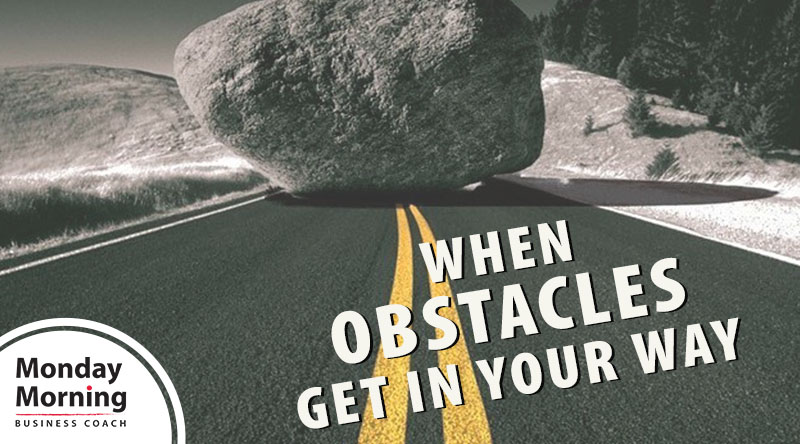In last week’s post, Heather shared how she used our Mapping Your Success Path framework to focus on her 2019 goals.
We heard from a number of you that you struggle in your personal and professional lives with staying on track with a plan. Some of you thought that Heather was so successful because she is a coach and does this work every day.
We have to admit, we regularly talk about how challenging it can be to stay on track, and that we never want to suggest that this is easy. So, this week, Heather is going to dive in a bit more to the Obstacle portion of the Success Path and give some additional details on the times she went off track and what she did to course correct.
As a reminder, after a complete tear of my ACL, I not only required surgery but 9-12 months of physical therapy to recover. To provide support for my recovery, I decided that my theme for 2019 was Mindfulness. Specifically, to be mindful of my attitude, mindset, and movement after knee surgery so that I could allow my knee to fully heal, become strong again, and no longer have pain.
I knew that 2019 would be a challenge because I have a long history of overdoing and hurrying – it has come to feel like my natural state. My recovery required me to be slow and steady. Clearly, I was going to need to do some things differently!
That said, there were many (MANY) times throughout the year where I bumped into my hurry habits and either did too much or, in reaction, did too little. At times I was exhausted or in pain. Other times I grappled with self-pity and “why me?” And, often I got really impatient because I felt my progress was taking too long.
Here’s what I did to keep myself on track (or to get back on track when I was derailed!):
I committed to doing the following three things for 5 minutes each morning. Notice the word commit. I didn’t expect to be motivated to do them every morning, so I treated them the way I treat work, I made them non-negotiable.
Priority: I’d remind myself of my big goal and why I was doing it. Actually, I had it written out and hung up on the wall which helped me to see my goal, in writing, on a regular basis.
Plan: I’d think about the one most important thing I needed to do that day for my recovery and visualize where and when I would do it.
Prepare: I’d prepare for the obstacles that I knew were likely to get in my way by creating an “If / Then” contingency plan. For example:
- “If I’m feeling great and am worried that I’ll do too much, then I’ll ask coworkers, friends, or colleagues to keep an eye on me.”
- “If I’m feeling like I don’t want to do anything but watch TV or stay in bed, then I’ll turn on my favorite music to get me moving.”
- “If I do the plan that the physical therapist has laid out for me for the whole month, and I don’t get hurt, then I’ll reward myself with a new pair of sneakers.”
Research shows that this type of realistic idealism can be key to ensuring we keep moving forward with our goals.
In her book, Rethinking Positive Thinking: Inside the New Science of Motivation, Psychology professor Gabriel Oettingen discovered that when people visualized details of both their outcomes and their obstacles, they were far more likely to achieve their goals.
To be very clear, along the way I did get derailed. What really helped me to continue moving forward was making my success non-negotiable; reminding myself of my big WHY, stating what my rewards would be, and creating a web of accountability with the people in my life.
A quote that inspires me to keep moving forward by Greg McKeown in his book Essentialism, is:
“If you don’t prioritize your life,
someone else will.”
We hope this has added some greater insight for you into the nature of obstacles and how to navigate the normal times when you get derailed on the way to your goals.
Heather’s journey and how her success was achieved wasn’t because she is a coach or because she didn’t get derailed, but because she planned for obstacles—she counted on them!
As you begin to map your success remember to factor in the obstacles as a normal, but challenging, part of the process so that they don’t throw you off course.
To your success!
If you’d like support in putting this framework
into action in your life, contact Heather
about our coaching services.

